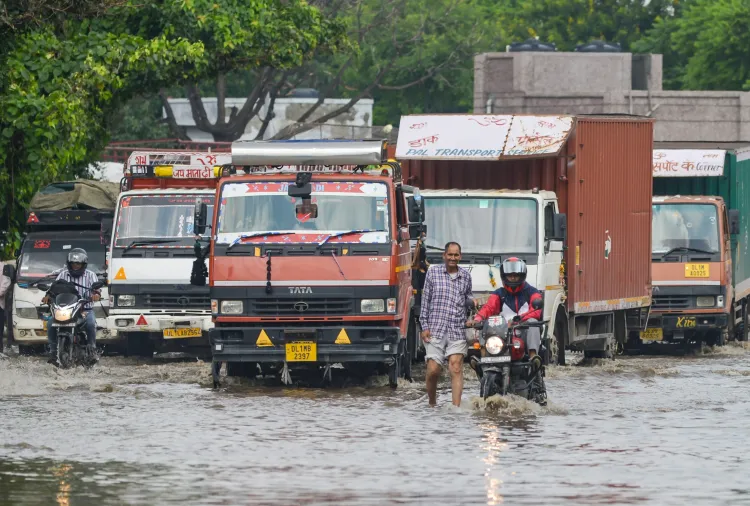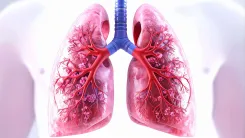Is there a rise in throat infections, flu, and dengue in Delhi?

Synopsis
Key Takeaways
- Throat infections are rising due to high humidity.
- Dengue cases have increased, with common symptoms including fever and body aches.
- Most cases are self-limiting and don’t require hospitalization.
- Preventive measures include maintaining hygiene and consulting doctors for symptoms.
- Stagnant water should be avoided to prevent mosquito breeding.
New Delhi, Sep 8 (NationPress) The persistent rainfall has led to an uptick in throat infections, flu, and dengue cases in the capital, according to health professionals on Monday.
Experts attribute the rise in these ailments to elevated humidity, changing temperatures, and significant waterlogging in several regions.
Dr. Harshal R Salve, Additional Professor at the Centre for Community Medicine at AIIMS, New Delhi, informed IANS, "Seasonal illnesses like flu (influenza) and vector-borne diseases such as dengue are trending this season due to increased transmission. Most cases are self-limiting and typically do not require extensive treatment or hospitalization."
Dr. Rishikesh Desai, a specialist in Internal Medicine at a prominent city hospital, noted, "In recent weeks, we have observed a surge in dengue cases. Common symptoms include fever, joint pain, body aches, rashes, and occasionally bleeding from various sites."
These vector-borne diseases result from mosquito breeding in stagnant water and can also lead to conditions like malaria and Chikungunya.
As per the latest weekly report from the Municipal Corporation of Delhi, there have been 499 recorded cases of dengue in 2025, alongside 235 malaria cases and 37 chikungunya cases. This marks an increase from 481 dengue, 210 malaria, and 29 chikungunya cases reported during the same timeframe in 2024.
Dr. Desai remarked, "Delhi has faced heavy rainfall recently, resulting in waterlogging. The humidity is high, and temperature fluctuations are also noted. All these factors can negatively impact health, contributing to water-borne, vector-borne, and respiratory illnesses."
He further explained, "The rise in humidity is contributing to throat infections. Patients are reporting symptoms like a runny or congested nose and throat discomfort, often accompanied by fever."
Other prevalent symptoms during this period include fever, abdominal pain, diarrhea, vomiting, and dehydration, according to experts.
Dr. Salve emphasized, "To prevent flu, maintain cough hygiene, wear a surgical mask, practice handwashing, and stay hydrated. If symptoms arise, consult a healthcare professional. Avoid taking any antibiotics without a doctor's prescription."
The expert also recommended preventing water stagnation in the vicinity and maintaining cleanliness to deter mosquito breeding. Using mosquito repellents during the day and wearing long-sleeved clothing can also be beneficial.









